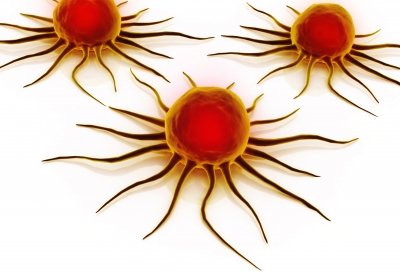Aussies to get breast cancer treatment analysis
07 January 2014 | News | By BioSpectrum Bureau

Australian women will have access to the only genomic test validated to predict whether patients with early-stage invasive breast cancer would benefit from chemotherapy
Singapore: Australian women will potentially have greater access to the only genomic test validated to predict whether patients with early-stage invasive breast cancer would benefit from chemotherapy, following an agreement between Specialised Therapeutics Australia (STA) and Genomic Health.
STA has struck an agreement to represent the important diagnostic technology known as the Oncotype DX Breast Cancer Assay from Genomic Health, the world's leading provider of genomic-based diagnostic tests that address both the overtreatment and optimal treatment of early stage cancer.
The Oncotype DX test is a 21 gene assay that predicts a patient's likely benefit from chemotherapy and the overall risk of breast cancer recurrence. This technology has been shown to guide treatment decisions, sparing patients the impact of unnecessary chemotherapy while identifying those patients who may benefit from this additional treatment.
Under the terms of the agreement, STA will undertake all commercial operations including sales and marketing of the product within Australia as well as providing product support and practitioner education.
As part of this agreement, STA has partnered with Healthscope Pathology who will continue to oversee logistics in Australia, including tissue sample management.
Announcing the distribution agreement with Genomic Health, STA Chief Executive Officer Carlo Montagner said the Oncotype DX assay was a high calibre tool for women diagnosed with early stage breast cancer who sought to avoid chemotherapy where possible, because it provided information about the likelihood of a cancer recurrence.
"This ground breaking test, which has been universally adopted in the US, helps women make informed decisions," he said.
"Many Australian women with early stage breast cancer have endured debilitating chemotherapy regimens as a precautionary measure. This test will arm women and their physicians with more information about the likelihood of the patient benefitting from chemotherapy, as well as recurrence, helping them make a well-informed treatment decision."
Developed by US based Genomic Health, Oncotype DX has been evaluated in 15 clinical studies in more than 6,000 patients. These studies include a large validation study published in the New England Journal of Medicine1 and a study published in the Journal of Clinical Oncology that examined whether Oncotype DX could predict the benefit of chemotherapy.2 Since becoming available in 2004, more than 400,000 Oncotype DX tests have been requested by more than 19,000 physicians in over 70 countries.
The Oncotype DX Breast Cancer Test is appropriate for recently diagnosed women with Stage I or II node-negative, oestrogen-receptor-positive, HER2 negative, invasive breast cancer; and postmenopausal women with node-positive, hormone-receptor-positive, HER2 negative, invasive breast cancer. The Oncotype DX results are provided in the form of a Recurrence Score, a number between 0 and 100, which correlates to a specific likelihood of breast cancer recurrence within 10 years of initial diagnosis and the likely benefit of chemotherapy.
The Oncotype DX DCIS Breast Cancer Test is also appropriate for women with newly diagnosed pre-invasive or Ductal Carcinoma in Situ of the Breast (DCIS) who are treated with local excision, with or without adjuvant tamoxifen therapy. The DCIS ScoreTM result predicts local recurrence of DCIS or invasive carcinoma and helps inform decisions regarding the need for additional treatments, like radiation, following surgical removal of the tumour.
National Comprehensive Cancer Network (NCCN)3, American Society of Clinical Oncology (ASCO)4, St Gallen , and the European Society for Medical Oncology (ESMO) have incorporated the Oncotype DX test into their guidelines.












